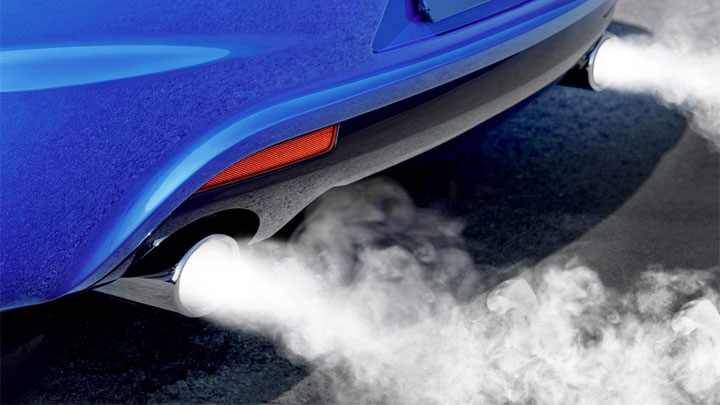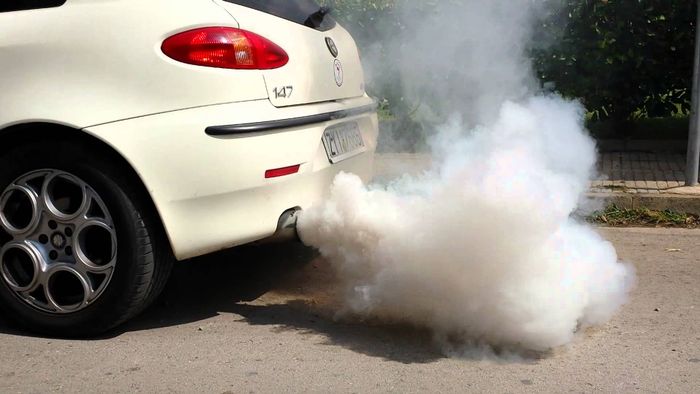For a long time, extreme clouds of exhaust fumes and heavy exhaust smoke were associated with the wonders of automotive progress. But nowadays, thanks to catalytic converters and particulate filters, you should ideally not be able to notice any exhaust fumes at all from your car’s exhaust.
Thick clouds of smoke have become a rare phenomenon, but black, white or blue smoke from the exhaust does not always mean that your car’s engine is defective. However, defects can very well be the reason for the smoke and, in extreme cases, colored exhaust fumes even indicate that your car’s technology has already suffered damage. In this guide we will show you what the color of the exhaust smoke tells you about the condition of the engine and what you should do if your exhaust is smoking.
White smoke from the exhaust / White smoke from the exhaust when accelerating
White smoke rises from the exhaust especially often in winter. This smoke is usually caused by water vapor in the exhaust gases when the engine of your car is still cold. White smoke from the exhaust when starting the car is therefore normal. Your car smokes white and smells like gasoline? Then be careful, because these signs often indicate a broken cylinder-head gasket. In this case, you should immediately visit a garage or otherwise repair the damage, because a defective cylinder head gasket can quickly result in engine damage.

Black smoke from the exhaust
Many drivers associate black smoke with an impending engine failure. But your car doesn’t always have to be on the brink here. Black smoke from the exhaust can also be caused by soot particles that settle in the exhaust when the engine is idling or driving slowly. If the engine is then run at higher speeds, these small particles are simply blown out, creating a cloud of black smoke. Black smoke from the exhaust often occurs in passenger cars with diesel engines.
Insofar as a compression ignition engine emits enormous soot and strong black smoke clouds form, an unclean combustion of the engine can also be a possible cause, for example if it does not receive enough oxygen. You should check whether the air filter is dirty and replace it if necessary.
Blue smoke from the exhaust
Blue smoke is the result of engine oil or unburned fuel that is in the exhaust gases. There are many possible causes here. When cold-starting your car, a high fuel content in the exhaust can be responsible for the blue smoke. However, this is completely harmless. But also a leaking oil circuit, a bad spray atomization caused by material wear or other factors can be the cause of blue smoke. If your car still has a lot of smoke even after long journeys, you should definitely visit a workshop to rule out serious problems and defects.

No comments:
Post a Comment